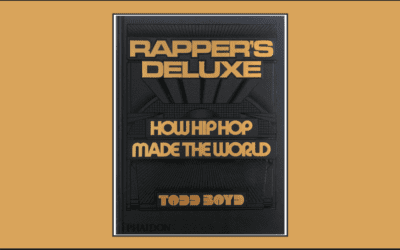Pimpin’ Film Ain’t Easy
Imagine a man from the streets, turned literary sensation, whose words would go on to shape an entire film genre. This is the tale of Iceberg Slim, a prominent African-American author whose impact on cinema is undeniable. Meanwhile, the 1970s saw the birth of a new film genre, Blaxploitation, about to give Hollywood a run for its money.
Iceberg Slim: The Literary Pioneer
Born Robert Beck, Iceberg Slim was no stranger to the harsh realities of urban life. His early experiences heavily influenced his writing, from hustling on the streets to serving time in prison. His groundbreaking memoir, “Pimp: The Story of My Life,” sent shockwaves through the literary world. With its raw themes and unfiltered writing style, Slim’s work resonated with readers, offering a glimpse into a world rarely seen in print. Learn more about the Iceberg Slim in our post about his life.
From Page to Screen: Blaxploitation Films
As the pages of Slim’s books came alive, so did a new genre of film: Blaxploitation. Characterized by its bold portrayal of black protagonists, funky soundtracks, and urban settings, this genre was a game-changer. Iceberg Slim’s stories were ripe for adaptation, and his influence on the genre was undeniable.
Trick Baby
Take, for example, the 1972 film “Trick Baby,” based on Slim’s novel of the same name. The film’s gritty narrative and authentic portrayal of street life echo Slim’s distinctive style, demonstrating his significant impact on the genre.
The Mack
Then there’s “The Mack” (1973), written by Robert Poole, who was heavily influenced by Slim’s “Pimp” while crafting the screenplay. Willie Hutch created the soundtrack. And the soundtracks were a huge part of the films, with Isaac Hayes, James Brown, Marvin Gaye, and Curtis Mayfield participating in different films. Read more about Mayfield’s legendary “Superfly” soundtrack.
Even in the new millennium, Slim’s influence persisted. “Crime Partners” (2001) was adapted from a novel by Donald Goines, a fellow author published by Bentley Morris of Holloway House, the same publisher as Iceberg Slim. The film starred Ice-T and was produced by famed drug kingpin Kenneth “Supreme” McGriff, further cementing Slim’s influence on the genre.
Iceberg Slim’s Cultural Influence
Iceberg Slim’s work did more than entertain; it sparked conversations and challenged societal norms. His writings, and the Blaxploitation films they inspired, confronted stereotypes head-on, giving a voice to marginalized communities. However, this didn’t come without controversy. Critics argued that Blaxploitation films perpetuated harmful stereotypes, while others saw them as a powerful tool for empowerment and representation.
Explore Slim’s Iceberg’s Sized Influence on Hip-Hop
Iceberg Slim: Legacy and Influence on Modern Filmmaking
Fast forward to today, and the influence of Iceberg Slim on contemporary cinema is still palpable. Filmmakers like Quentin Tarantino have openly credited Slim as a source of inspiration, with films like “Jackie Brown” reflecting elements of Blaxploitation and Slim’s narrative style. The evolution of urban narratives in the film is a testament to Slim’s enduring legacy, proving that his influence is far from over.
Iceberg Slim – The Conclusion
Iceberg Slim’s influence on the Blaxploitation film genre is undeniable from the pages of his memoir to the silver screen. His raw narratives and authentic portrayal of urban life reshaped cinema, challenged societal norms, and empowered marginalized voices. As we continue to see his influence in modern filmmaking, one thing is clear: the legacy of Iceberg Slim is as enduring as the man himself. So, next time you watch a gritty urban drama or a film that breaks the mold, remember the man who started it all: Iceberg Slim. We’re developing sets of themed series, including this one in Iceberberg Slim. Stay updated with detailed dives into hip-hop history, narrative detours, the history of sampling, and hip-hop production equipment. Sign up for our email and discover hip-hop’s untold stories:


